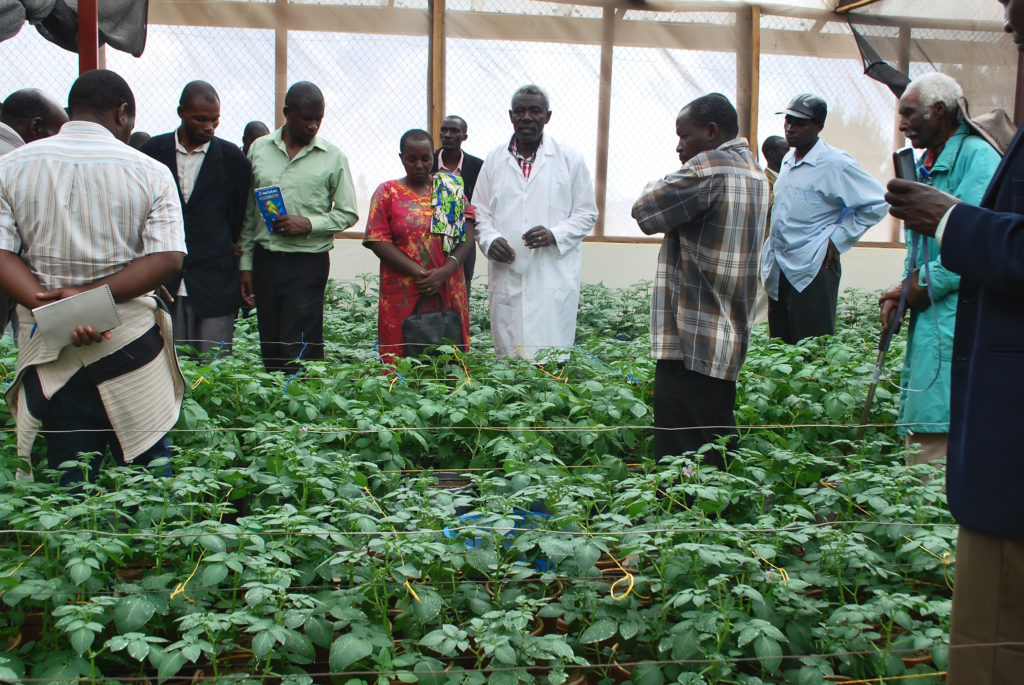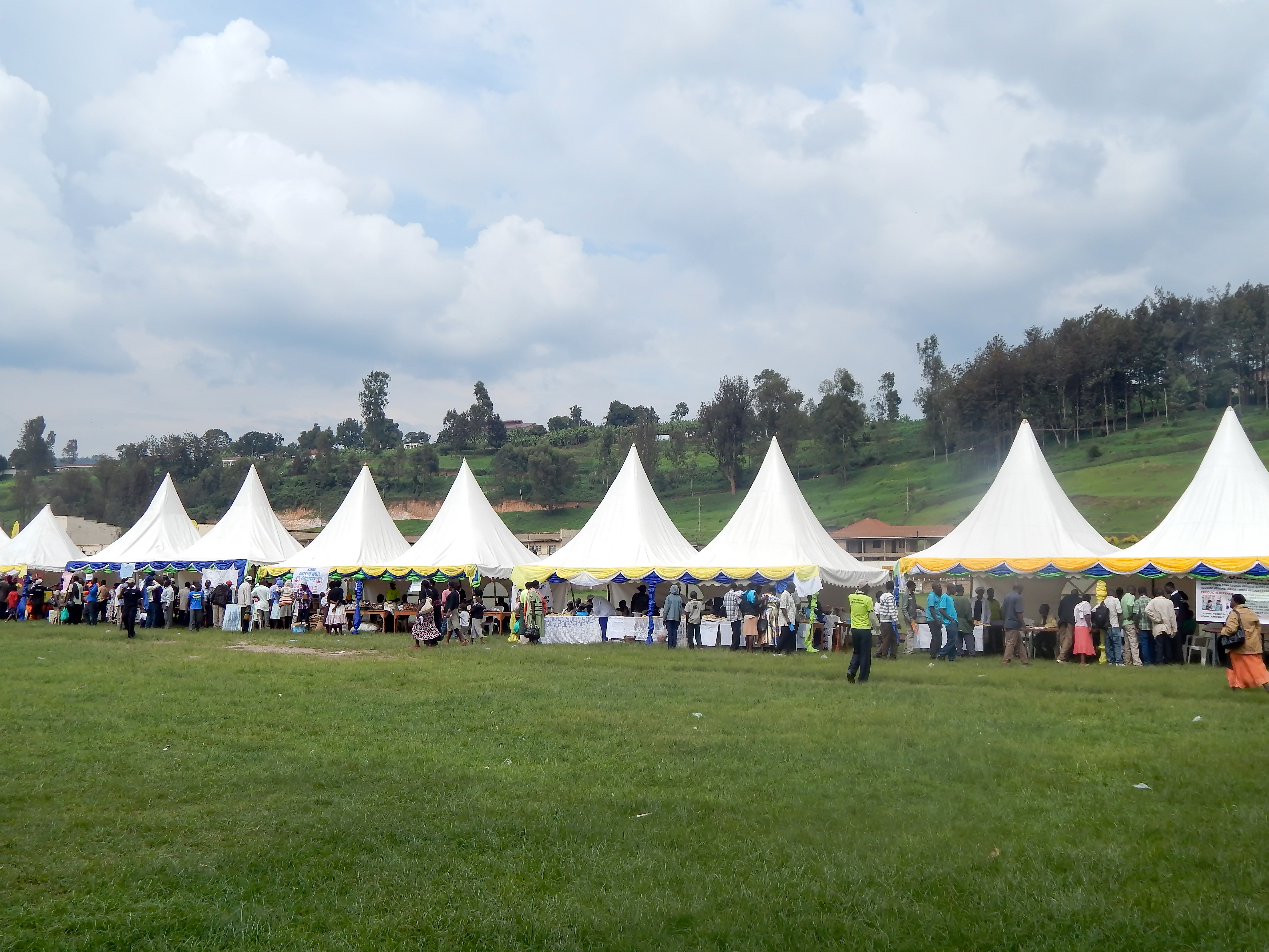
IFDC’s CATALIST-Uganda project organized the first ever “Potato Week” in Kabale District, southwestern Uganda, from 7-10 December 2015. The event, which attracted over 5000 participants, sought to facilitate the sharing and exchanging of knowledge and skills among potato value actors, supporters and agribusiness environment enablers. Event organizers hoped the week would increase adoption of promoted innovations/technologies and business linkages.
Potato Week attracted potato value chain actors, supporters and environment enablers from different parts of Kigezi, Greater Mbarara and potato farmers from the Kapchorwa District in eastern Uganda.

During an address to participants, Innocent Uzatunga of Kachwekano Zonal Agricultural Research and Development Institute (KAZARDI) spoke about how farmers must pay special attention to the quality of seed they plant in order to fight pests and diseases – the biggest challenges to potato production – and increase yields and incomes.
“KAZARDI, with assistance from the International Fertilizer Development Center (IFDC), has trained over 1,000 farmers in seed production, storage and cleaning with the aim of equipping them with knowledge and skills so that they can produce, multiply and deliver clean virus-free seed to other farmers,” said Uzatunga.
Uzatunga said one of the biggest challenges KAZARDI faces as an institute is high demand for quality seed.
“The institute can only supply 60 tons against the 299,000 tons of demand, but we are hopeful, especially now that IFDC has brought farmers on board to produce seed. This will soon be a story of the past,” he said.
One of the participants, Charles Byarugaba, director of Nyabyumba Farmers Innovative Resources Centre, said he is one of the farmers who has benefited from the training. Byarugaba explained that he used to practice subsistence farming with little knowledge of the importance of planting clean and marketable seed.
“All I cared about was to see the tubers coming out. The quality of the clean seed had nothing to do with me,” he said. He was quick to add, however, that when IFDC came to southwestern Uganda, it changed his mentality and gave him a second thought about good farming practices and the importance of planting clean seed.
“IFDC sensitized us to the benefits of planting quality and clean seed,” he said. “I gave it a try, and as you can see, my yields improved greatly. In fact, because of IFDC and its help, I was trained on how to multiply the seed for farmers. I am now a proud professional farmer and, of course, making money.”
Through IFDC innovation grants, Byarugaba constructed a screen house to multiply seed for potato farmers in the region. By planting potato seed in sand and buckets and harvesting seed three times a year, he makes more than UGX 37 million (about U.S. $10,653.78) per season.
Byarugaba said trained farmers have learned not only how to produce clean and quality seed, but they’ve also learned to employ good practices of potato handling, marketing, environmental management and conservation, rain harvesting and sustainable farming.
“When I get out my hoe to dig, I do not just dig,” Byarugaba said. “I am out to do business. That’s why I labor – to add value to my farming activities, to make my seed marketable. I am confident about the quality I am giving them.”
CATALIST-Uganda, funded by DGIS and the Embassy of the Kingdom of the Netherlands in Uganda, focuses on commercializing smallholder farmer agriculture by improving productivity and market development in Uganda.
Written By:
Brenda Akuruchet




